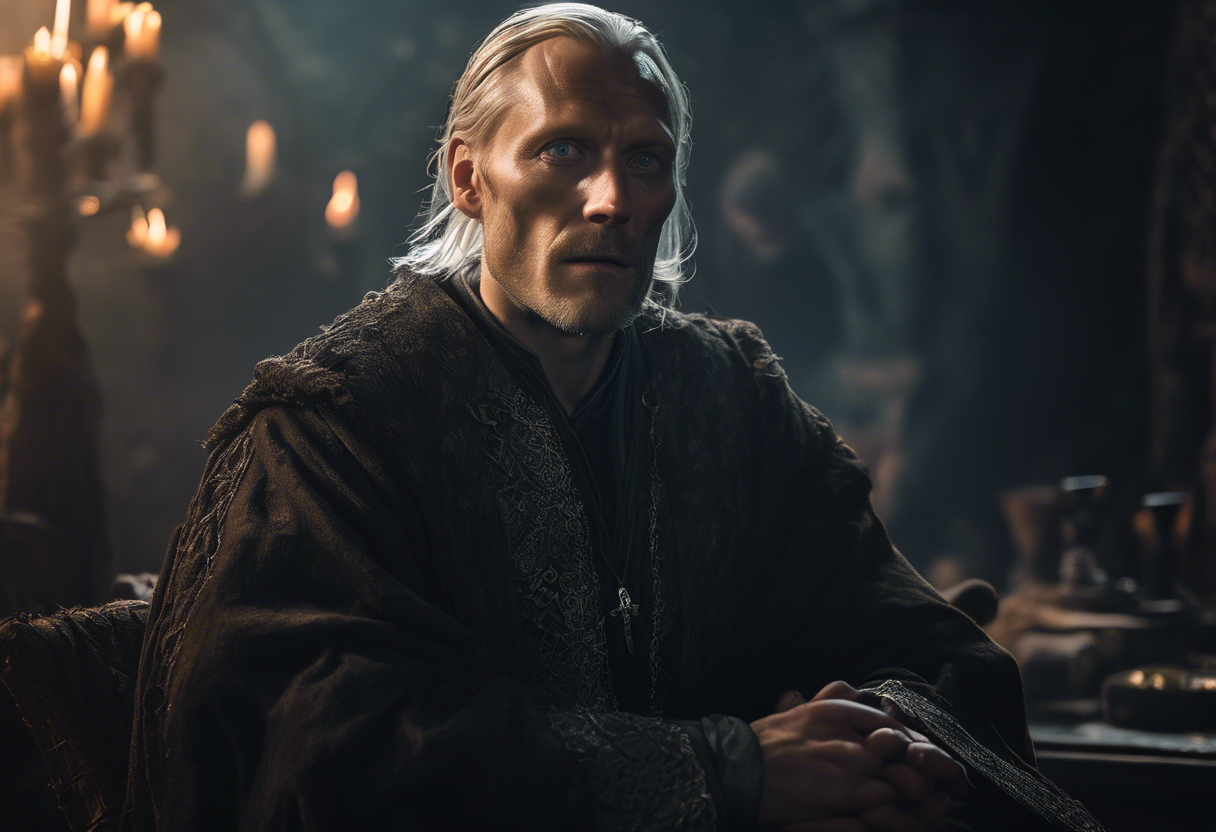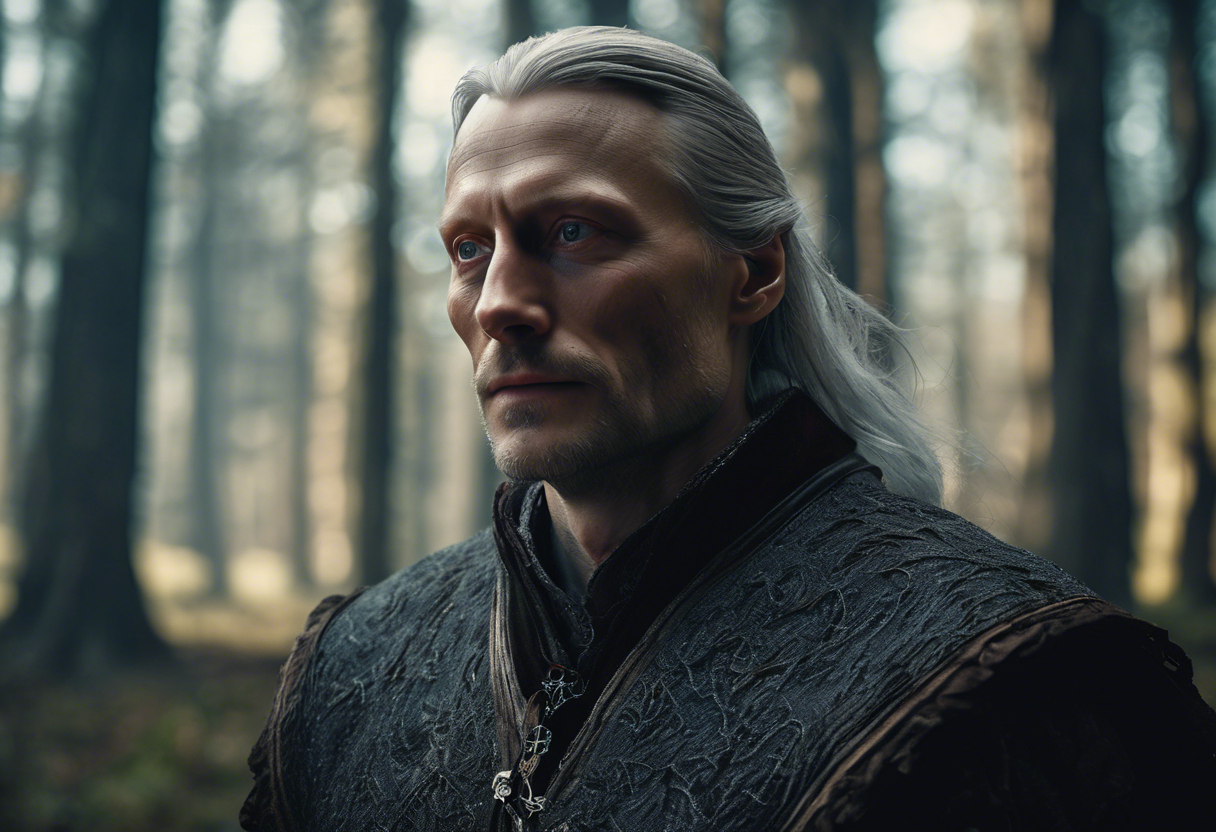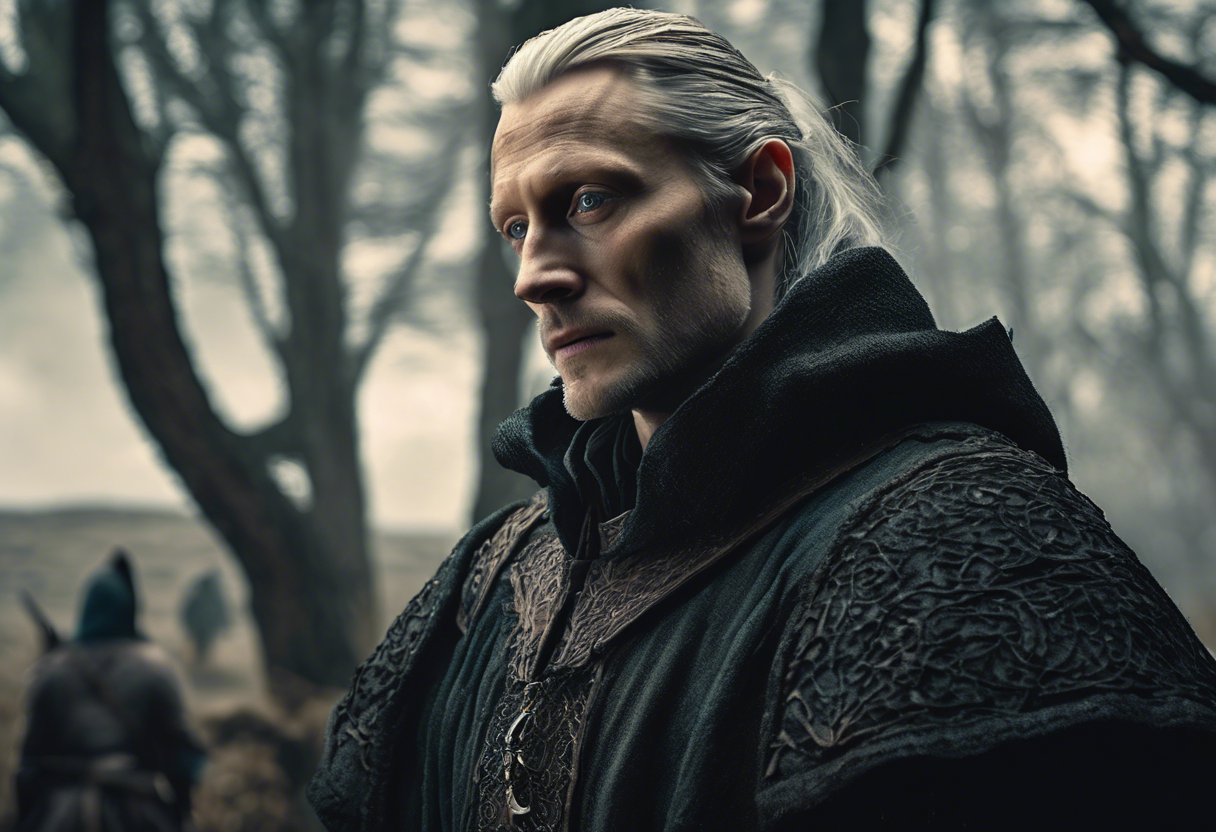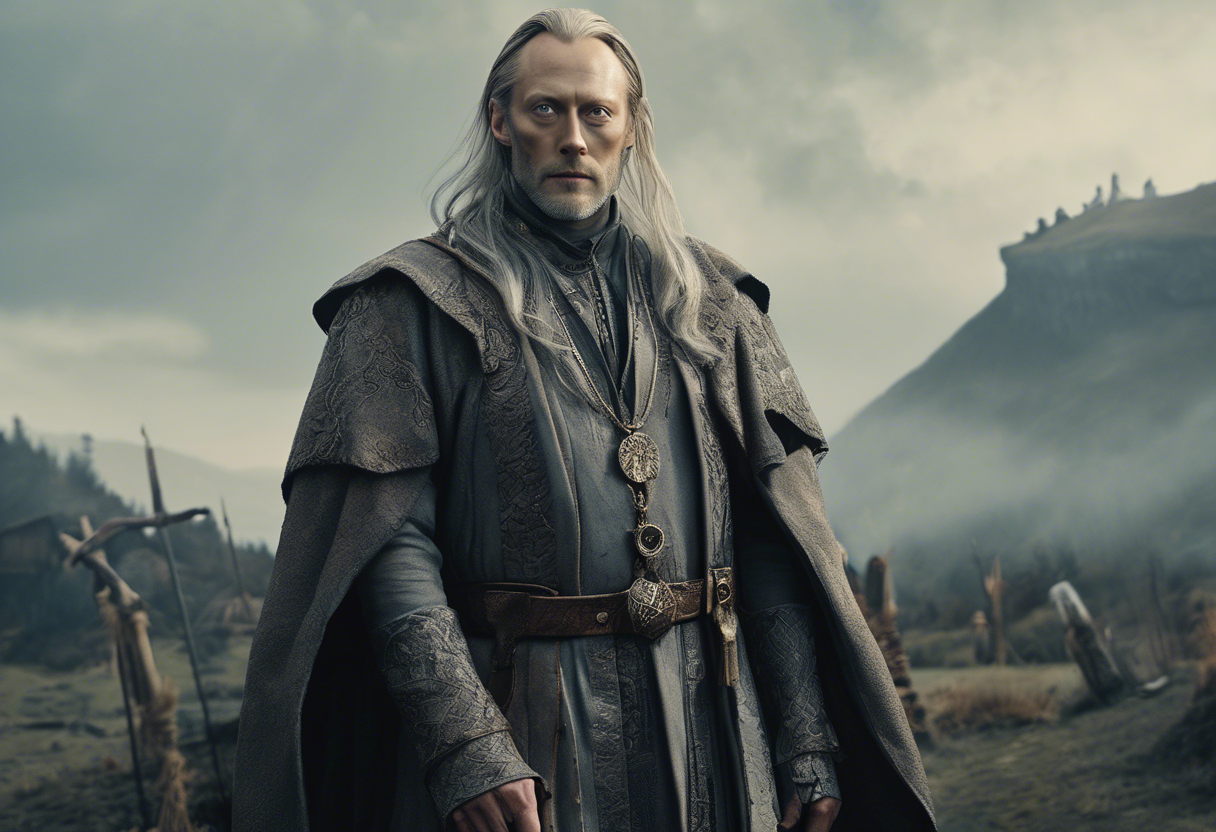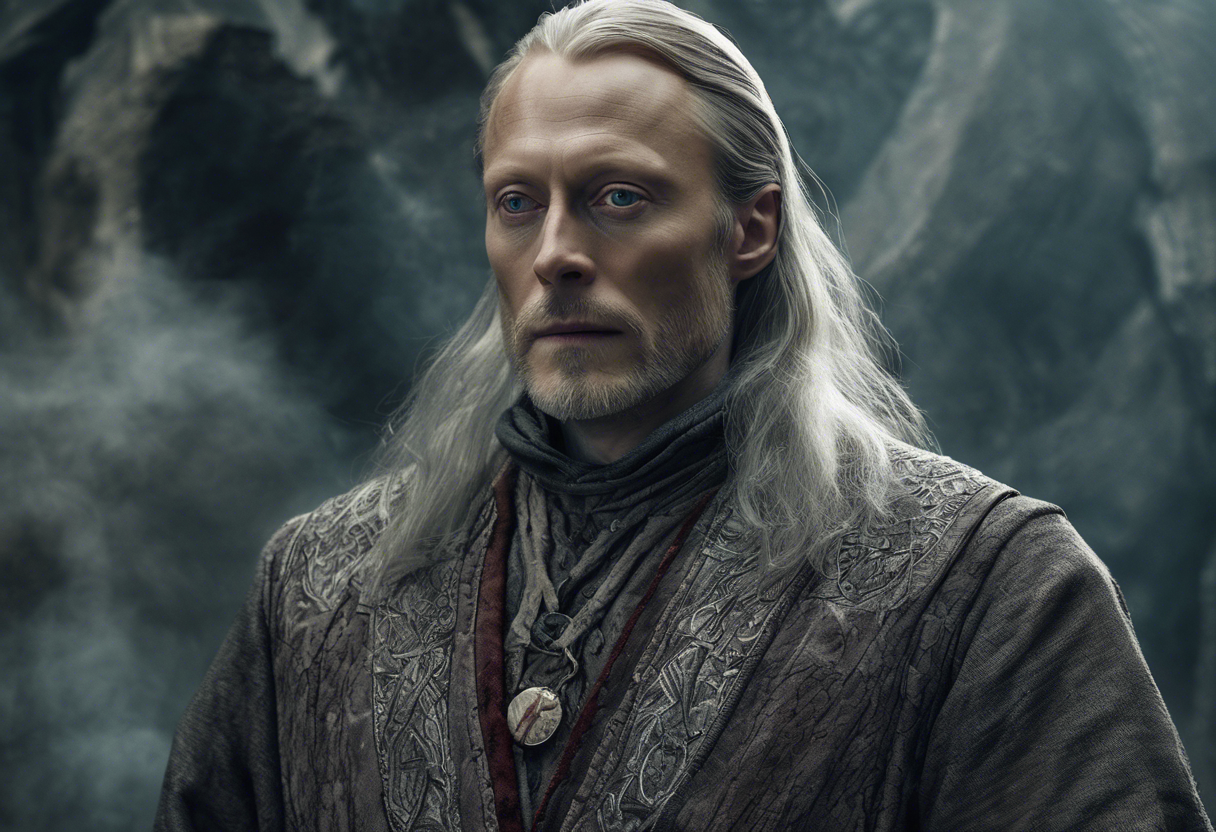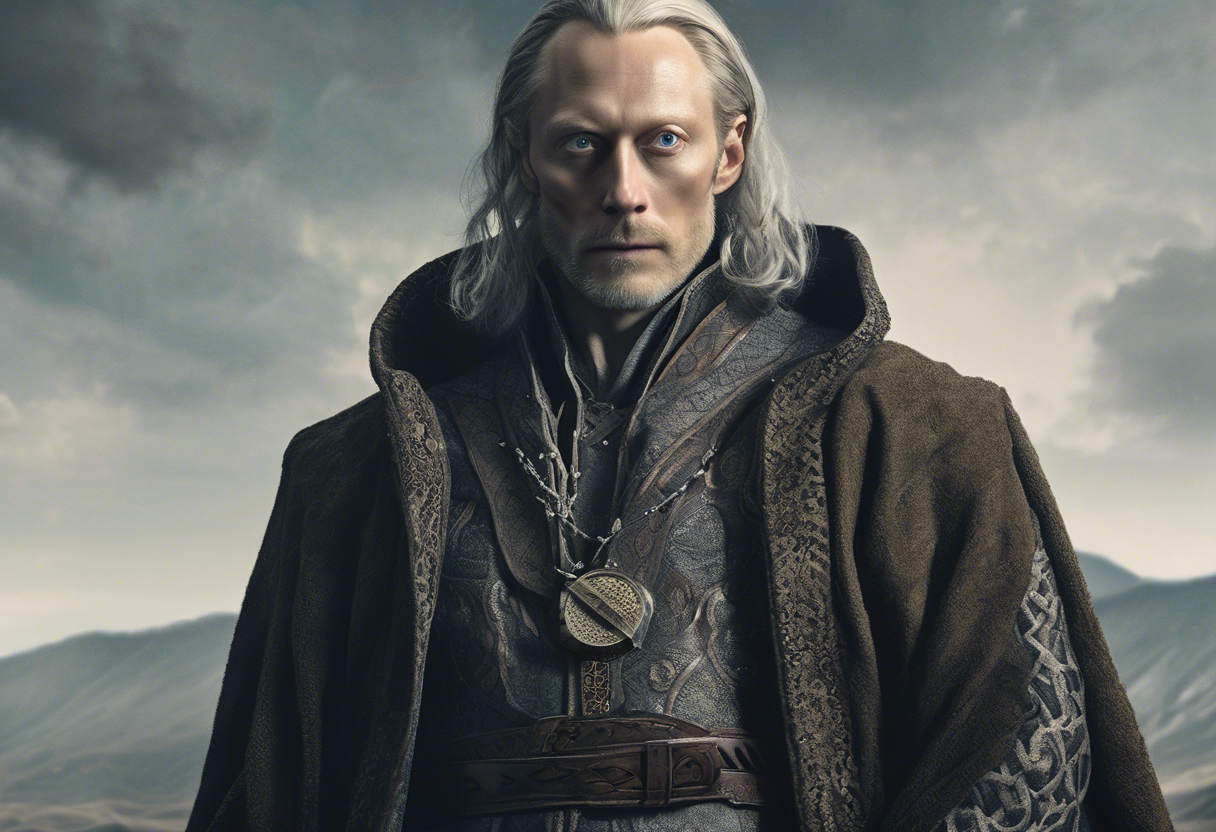Contents
Stregobor in The Witcher Netflix Series
Introduction
Stregobor, played by Danish actor Lars Mikkelsen, is a significant and complex character in the Netflix series adaptation of The Witcher, based on the book series by Andrzej Sapkowski. Originating from the nation of Kovir, Stregobor is a powerful mage with a long history of practicing magic, likely spanning over a hundred years[2][5].
Stregobor’s character is deeply rooted in the dark and often corrupt nature of magic users on the Continent, a theme prevalent in both the books and the Netflix series. His role in the narrative is multifaceted, involving intricate relationships with key characters such as Geralt of Rivia and Yennefer of Vengerberg, and his actions significantly impact the political and magical landscapes of the series.
Role in the Series
Stregobor is first introduced in the series premiere, "The End’s Beginning," where he attempts to convince Geralt to kill Renfri, a princess afflicted with the supposed "Curse of the Black Sun." This encounter sets the tone for Stregobor’s character, highlighting his willingness to perform horrific acts in the name of magical research and his reputation for mutilating and studying women with this curse[2][3].
Throughout the series, Stregobor’s role is expanded beyond his initial appearance. He serves as a teacher to Istredd and is a key figure in the Brotherhood of Sorcerers, often speaking out against Yennefer and engaging in moral and political conflicts with Geralt[3].
In Season 2, Stregobor’s antagonistic role is further emphasized as he frequently clashes with Yennefer and Geralt. His worldly tastes and willingness to perform atrocities for magical gain are recurring themes[2].
In Season 3, Stregobor comes under suspicion from Geralt and Yennefer, culminating in a pivotal scene at the ball at Aretuza. Here, his paths cross with the main characters once more, leading to a dramatic and controversial moment where he uses fire magic to defend against the Scoia’tael, potentially sacrificing himself in the process[2][5].
Character Analysis
Stregobor’s personality is marked by arrogance, a strong sense of self-importance, and a lack of compassion. He is driven by a desire for knowledge and power, often at the expense of others. His backstory, though not fully explored, hints at a long and troubled history, particularly his involvement in the rebellion led by Falka, which has left him with a deep-seated hatred for elves[4].
Despite his villainous traits, Stregobor’s character is made more complex by the Netflix series. His actions, though often reprehensible, are motivated by a twisted sense of purpose and a belief in the necessity of his research. This complexity makes him a compelling and nuanced antagonist, adding depth to the narrative[5].
Stregobor’s relationships with other characters are also significant. His mentorship of Istredd and his conflicts with Yennefer and Geralt highlight his influence and the moral dilemmas he poses to those around him. His lack of humanity and compassion, however, makes his eventual sacrifice in Season 3 a moment of mixed emotions for the audience[3][5].
Themes and Symbolism
Stregobor embodies several key themes in The Witcher series. He represents the darker aspects of ambition and the pursuit of knowledge, often at any cost. His actions symbolize the corrupting influence of power and the dangers of unchecked ambition.
Additionally, Stregobor’s character touches on themes of prejudice and hatred, particularly his deep-seated animosity towards elves. This aspect of his character serves as a commentary on the dangers of bigotry and the destructive nature of such prejudices[4].
The use of fire magic by Stregobor in his final moments also carries symbolic weight, representing both his ultimate sacrifice and the consuming nature of his own ambition. This act can be seen as a form of redemption, though it is a controversial one given his past actions[5].
Cultural Impact
Stregobor’s character has had a significant impact on the cultural landscape of The Witcher fandom. His portrayal by Lars Mikkelsen has been both praised and criticized, with some appreciating the depth he brings to the character and others finding his actions and beliefs repugnant.
The decision to make Stregobor a more central character in the Netflix series, deviating from his limited role in the books, has been a topic of discussion among fans. While some appreciate the additional layers this brings to the narrative, others feel it alters the character’s original intent[5].
In terms of popular culture, Stregobor’s character contributes to the broader discourse on complex villains and the moral ambiguities present in fantasy narratives. His character archetype – a powerful, arrogant, and morally ambiguous mage – is a common trope in fantasy literature and media, making him a relatable and recognizable figure[3].
Critical Reception
The reception of Stregobor’s character has been mixed. Critics have praised Lars Mikkelsen’s performance, noting his ability to bring depth and nuance to a character who could otherwise be one-dimensional[3].
However, the decision to make Stregobor a heroic figure in his final moments has been controversial. Some critics argue that this redemption arc feels forced and uncomfortable, given his history of bigotry and horrific actions[4].
Fans have also had varied reactions, with some appreciating the complexity of his character and others feeling that his actions are irredeemable. The debate surrounding his character reflects the broader themes of the series, including the nature of redemption and the consequences of one’s actions[5].
Legacy
Stregobor’s enduring appeal lies in his complexity and the moral dilemmas he presents. His character serves as a reminder of the dangers of unchecked ambition and the importance of compassion and empathy.
In contemporary discussions, Stregobor’s character can be seen as a reflection of real-world issues such as prejudice, the pursuit of power, and the consequences of one’s actions. His legacy in the world of The Witcher is that of a multifaceted antagonist who challenges the main characters and the audience to question their moral standings.
Stregobor’s influence can also be seen in other works of fantasy, where complex villains with nuanced motivations are increasingly common. His character archetype continues to inspire writers and creators, adding depth and complexity to their narratives.
References
- https://www.imdb.com/title/tt5180504/characters/nm0586565
- https://winteriscoming.net/2023/06/30/who-is-stregobor-in-the-witcher/
- https://www.ign.com/articles/2019/12/28/the-witcher-characters-actors-explained-renfri-stregobor-calanthe
- https://www.digitalspy.com/tv/ustv/a44590230/witcher-stregobor/
- https://screenrant.com/the-witcher-season-3-stregobor-fire-magic-book-change/

